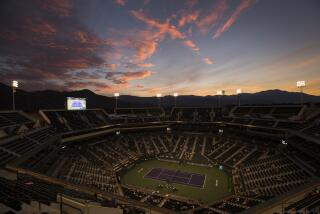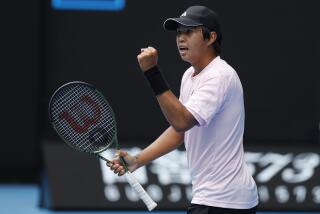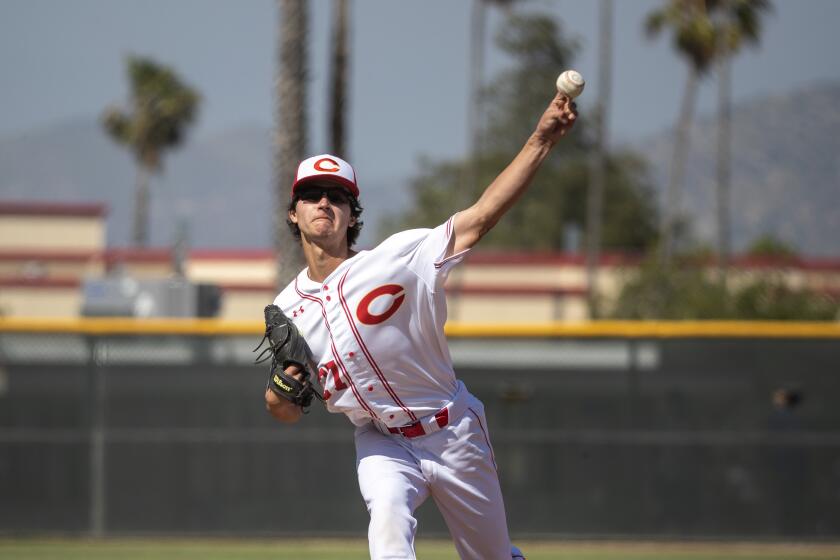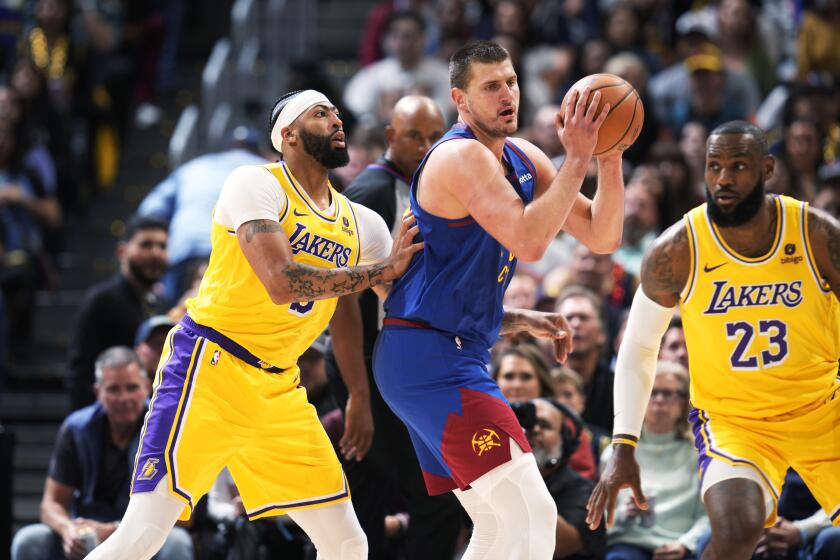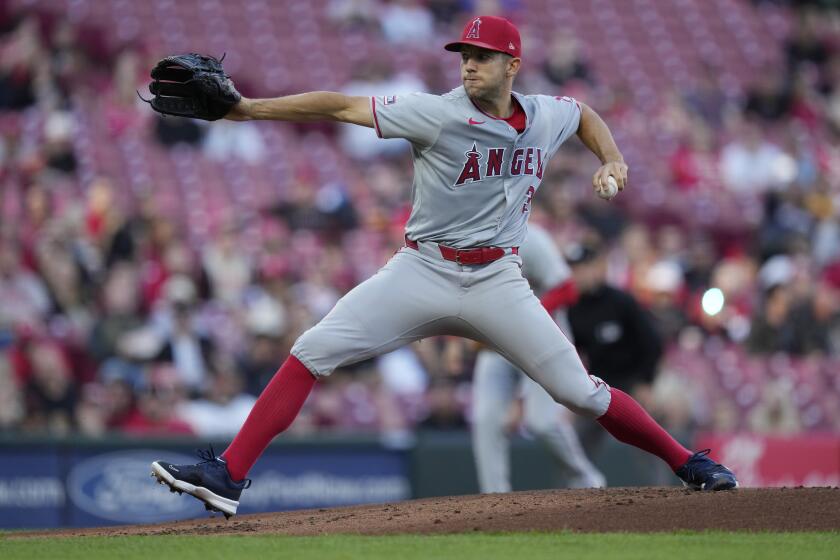Column: Roger Federer continues to drink from the fountain of youth
This thing is getting ridiculous, this Roger Federer thing.
It turns out that, when Ponce de Leon was looking for his fountain of youth, he was looking in the wrong place. Switzerland, Ponce.
Federer was back on the main stadium tennis court Monday afternoon at the BNP Paribas tennis tournament at Indian Wells. He has spent about as much time there as Strom Thurmond spent in the U.S. Senate. Federer is 36 years, 7 months and 4 days old. He is remarkable, and those words represent the ultimate understatement. He remains a master in a sport that eats the body and mind quickly, especially when you are at an age where most with that kind of hard-court mileage would be scheduling knee replacement surgery.
There is almost nothing, nor anybody comparable, except, well, Serena Williams. Maybe old Ponce, having missed Switzerland, should have made a stop in Compton.
Federer has won the men’s singles title here, in this place and tournament — where it always feels more like a postcard than a real place — five times. He is ranked No. 1 in the world, the oldest male to be so since they started putting numbers to players in 1973. In Australia, at the first major tournament of the year, he won his 20th Grand Slam event. That’s not only a record. It’s a pipe dream.
Monday, in a 6-2, 6-1 practice session that will actually be listed as a third-round victory, Federer beat a decent player named Filip Krajinovic of Serbia. Krajinovic is No. 25 in the world. He is 26 years old. The two had never met before, so Federer needed to establish who he was, just in case Krajinovic didn’t quite know. Krajinovic served eight times and faced seven break points. Federer tortured him with huge serves (six aces) and half-a-dozen dainty drop shots. He even won two line-call challenges, one on a break point. Old eyes? Are you kidding?
In a sport where pressure and intimidation play a huge role, Federer seldom blinks. In his second-round match here at the Indian Wells Palace, aka tennis stadium, he was struggling in a second set. He managed to get it into a tiebreaker, then got himself into perfect position. He led 5-4 and had two serves. Stunningly, he lost both points. That is the cue for most players to crumble. Not Federer. A few points later, he had won.
And then, just as he did after beating Krajinovic, he walked to the net, shook hands, met the public address announcer to field a few questions for the always-packed crowd, and praised his opponent. The question, after the Krajinovic match, was: “Well, 58 minutes. What took you so long?” Federer quickly turned it into an opportunity to say that his opponent wasn’t having his best day and is a really good player.
It is one thing being a legendary player, altogether another a decent person.
With three-quarters of the Big Four of men’s tennis now out of the Indian Wells draw — Novak Djokovic lost Sunday and Rafael Nadal and Andy Murray are injured — Federer was asked if he liked a draw with his main opponents missing, or liked it better with the challenge when they were there.
“It’s a bit of both,” he said. “It is a different vibe when none of them are there.”
He quickly parlayed that into an opportunity to call Nadal “the greatest clay-court player in the history of the game.”
The nice-guy stuff doesn’t impede, in any way, the competitive fires. The absence of Djokovic, Nadal and Murray — as well as fellow Swiss star Stan Wawrinka — doesn’t mean Federer can’t be a bull when there are red capes in view. If he continues to win into the semifinals, and 12th-seeded Tomas Berdych of the Czech Republic does the same, Federer will see red. They have played 26 times. Federer has won 20. One of the six still sticks in Federer’s craw.
That was 2004, the Athens Olympics. Federer had been No. 1 in the world for about six months by then. Berdych upset him. Federer was so good and so young and so unapproachable in tennis skills then, almost as he is now, that a gold medal was an assumption. That missing Olympic gold medal in singles is the only real glitch in his resume. He has won one in doubles, with Wawrinka. He has won every Grand Slam tournament. He has done everything in tennis except that singles gold.
If asked, he would dismiss that Berdych match in Athens as water under the bridge. If they play — probably every time they play — he remembers, if only for a second. He also probably thinks that, in 2020 in Tokyo, he will just be turning 39.
More to Read
Get our high school sports newsletter
Prep Rally is devoted to the SoCal high school sports experience, bringing you scores, stories and a behind-the-scenes look at what makes prep sports so popular.
You may occasionally receive promotional content from the Los Angeles Times.
